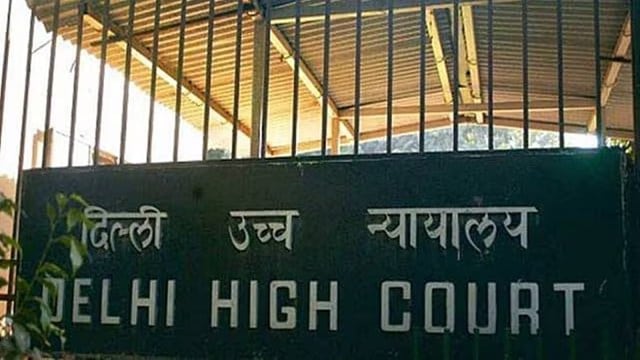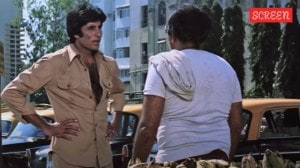‘Miscarriage of justice’: Delhi HC raps lower court for discharging 2 accused in ‘child pornography’ case
While discharging the two accused in 2023, the sessions court had held that POCSO cannot be invoked against them in the absence of any criteria to determine the age of the children in 'pornographic' videos or photos.
 The petitioner, Tulir Charitable Trust, also sought formulation of guidelines for the benefit of courts hearing cases involving Child Sexual Abuse Material (‘CSAM’) of unidentified child/children online or offline. (File)
The petitioner, Tulir Charitable Trust, also sought formulation of guidelines for the benefit of courts hearing cases involving Child Sexual Abuse Material (‘CSAM’) of unidentified child/children online or offline. (File)The Delhi High Court has converted a public interest litigation plea (PIL) into a suo motu revision petition after observing that the sessions court while discharging two accused people in an alleged case of child pornography, had caused miscarriage of justice.
The division bench order on May 9 came in a PIL challenging a September 2023 sessions court order which had discharged the two accused of offences under the Protection of Children from Sexual Offences Act (POCSO). The two individuals along with other unknown persons were accused of being involved in circulating, storing and viewing child sexual abuse material through social media groups.
The petitioner, Tulir Charitable Trust, also sought formulation of guidelines for the benefit of courts hearing cases involving Child Sexual Abuse Material (‘CSAM’) of unidentified child/children online or offline.
While discharging the two accused, the sessions court had held that POCSO cannot be invoked against them in the absence of any criteria to determine the age of the children in the pornographic videos/photos.
After a First Information Report was registered, a search was conducted which recovered a phone and a hard disk from the houses of the two persons in November 2021. Upon investigation, 34 videos from the mobile phone and 14 videos from the hard-disk were recovered from one of the men and 25 videos were recovered from the phones of the other which depicted children in a sexually explicit manner.
The sessions court said that since the children depicted in the sexually explicit material were “unidentified and untraceable”, no medical or scientific test could be carried out because no documents were available for determining their age and hence POCSO could not be invoked.
A division bench of Acting Chief Justice Manmohan and Justice Manmeet Pritam Singh Arora, however, said that the findings in the sessions court order “prima facie suffer from manifest illegalities and have caused miscarriage of justice”.
The High Court observed that the sessions court had failed to consider the definition of child pornography which is of relevance for invoking the POCSO Act. Secondly, the sessions court had disregarded the statements of two doctors who had opined that some of the persons shown in the video/photos were in fact below 18 years of age and are children.
“This court is of the opinion that the view of the learned ASJ-SC (Additional Sessions Judge–Special Court POCSO) in disregarding the statement of medical witness is wholly unwarranted, especially when there was no medical or scientific material to contradict the statements made by the doctors,” the bench observed.
Thirdly, the bench observed, that the sessions court had ignored the principle that the only requirement at the stage of framing of charge is “whether there is sufficient material on record to presume that the accused persons have committed the crime”.
Referring to various SC and HC judgments the bench said that “revisional jurisdiction” of the High Court can be invoked “suo moto” in cases of “manifest illegality”, or where the courts have wrongly appreciated or refused to appreciate evidence.
(Under the HC’s revisional jurisdiction, it can revise cases decided by subordinate courts to ensure delivery of justice, maintainability of fairness, and to satisfy itself on the correctness and legality of the order passed by subordinate courts.)
Exercising its “suo motu revisional jurisdiction” under Section 397 and 401 of the CrPC, the bench directed that the PIL be registered as a “suo moto revision petition” and listed before a single judge bench of the HC as per roster on May 21.
It further appointed advocate Aashaa Tiwari as amicus curiae to assist the single judge bench. The court also permitted the petitioner’s counsel to assist the amicus curiae.
The HC also issued notice to the two accused persons on why the sessions court order should not be set aside.
The court, however, clarified that the observations made in its order are “prima facie in nature” and the parties are at liberty to raise all their contentions and submissions before the single judge bench.
During the hearing, the bench also asked CBI’s counsel if the agency had filed an appeal or a revision against the lower court order. The agency responded that it had not nor do they intend to challenge the order as the trial is proceeding ahead under provisions of the Information Technology Act and criminal conspiracy under IPC.
The bench also noted that the petitioner–a charitable trust engaged in combating child sexual abuse–is neither a witness nor complainant in the case before the sessions court and is a stranger to the criminal proceedings.
“It is settled law that PIL in criminal matters is normally not to be entertained,” the HC added. On the formulation of guidelines, the court said that it is not called for as there are sufficient legal provisions to deal with it.











